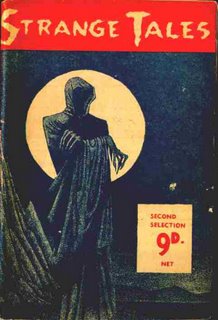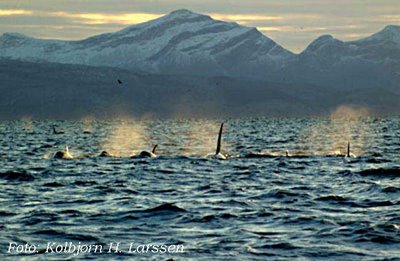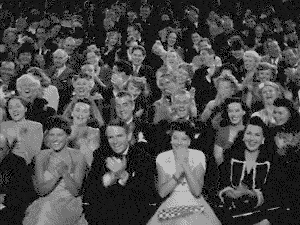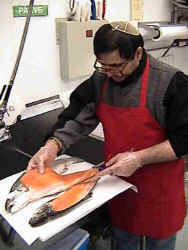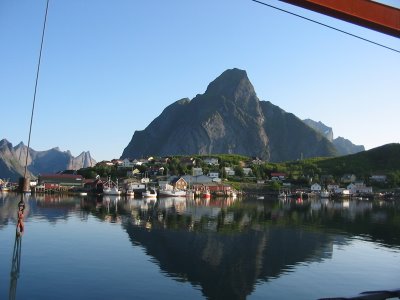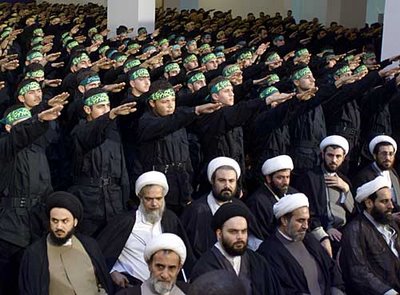 A
A full month after I wrote
this Chronicles column,
complaints are still appearing on the letters page.
The latest, from Vancouver's James Lindfield, makes some good points that are not directly related to what I wrote. Setting aside his other observations, and his complaints about what I didn't write, Lindfield asserts that "two minutes of research" would have shown me the absurdity of referring to "the massive concrete wall erected by Israel on Palestinian land" as a "fence."
Well, I don't know about that, Jim. I referred to the "wall" by writing "almost all of [it] is actually a wire fence that follows a tortured path in and around the West Bank," and I actually spent a heck of a lot more than two minutes deciding to characterize the thing that way.
The Washington Post says it is "
a massive complex of walls, fences and trenches," and also "
fences, walls, concertina wire and patrol roads." The Israel Virtual Library notes: "
Only a tiny fraction of the total length of the barrier (less than 3% or about 10 miles) is actually a 30 foot high concrete wall, and that is being built in three areas where it will prevent Palestinian snipers. . . from shooting at cars" And Wikipedia: "
Most of the barrier (over 95% of total length) consists of a wire fence with an exclusion area on each side, often including an anti-vehicle trench, and averaging approximately 60 m in width. Some sections (less than 5% of total length) are constructed as a wall made up of concrete slabs up to 8 m in height and 3 m in width." And that's just a smattering of the sources I consulted, all saying more or less the same thing.
But Lindfield raises another complaint: "Worse, Glavin blithely assures readers that Israel will leave “almost all” of the occupied Palestinian land." What I wrote, specifically, was this:
In fact, CUPE BC’s only condemnation of the “occupation of Palestine” is a five-year-old resolution that refers to Israel’s illegal settlements in the West Bank, Gaza, and East Jerusalem. Since then, Israel has withdrawn its settlements in Gaza, and is making plans to withdraw from almost all of the West Bank. So the term occupation, as it appears in the CUPE Ontario resolution, doesn’t make much sense unless it’s meant to condemn Israel’s existence in what some people prefer to call Palestine. The problem is, all Lindfield offers by way of contradiction is
a notorious opinion uttered two years ago by Israeli "Chief of Staff" Dov Weisglass, a controversial military guy who served a brief and lame stint as Ariel Sharon's spokesman. Lindfield, rather blithely himself, I thought, presents Weisglass's opinion, which was immediately rebuked, as a kind of proof that Israel's withdrawal from Gaza, and its plans to withdraw from most of the West Bank, are merely a ruse to "prevent the formation of a Palestinian state."
Last week, also in the Georgia Straight, Gwynne Dyer wrote a rather
over-the-top analysis that prompted
several more letters of complaint, all of which I found quite interesting, but especially the letter from Shira Macklin of Vancouver, who wraps up this way:
I’m also wondering about the seemingly one-sided coverage of this complicated issue in an otherwise largely local paper.My editor, Charlie Smith, can answer that complaint without any help from me, but I might observe that the Palestinian view - if it's possible to simplify things that way - is perhaps not so fully represented in, say, Vancouver' s other newspapers. The Georgia Straight has a long tradition of making room for views that are otherwise underrepresented in the dailies. Only this week,
Charlie himself wrote a story that might be said to serve that purpose. He even quoted Rafeh Hulays, whose
complaints about my column on the CUPE-Ontario Boycott-Israel rumpus appeared a couple of weeks before in the Straight's letters pages.
In that story, Hulays says Israel is now committing war crimes in Lebanon, and that people who support the bombing campaign, including Prime Minister Stephen Harper, should be held "personally responsible”. Fair play to Hulays. But let's also remember that elsewhere, Hulays has publicly sided with Hizbollah (
scroll down) and describes the Hizbollah kidnapping of the Israeli soldiers - the event that started all this - as being "legal, moral and necessary."
With that said, it's only fair to out myself, too. But I'm afraid it's not going to be all that exciting.
I'm heartbroken about what's happening in Lebanon, and I don't think Israel is doing enough to avoid civilian casualties in its campaign against Hizbollah. I'm for a Palestinian state, but I also know the people of Israel have every right to defend themselves against Hizbollah and Hamas and all the other Jew-haters arrayed against them. Mainly I wish there was a real and relevant "peace movement" in the West - instead of the
Blame-Israel-For-Everything and
It's-All-About-U.S.-Imperialism crowd - that might more effectively campaign for an honourable two-state solution.
LabourStart's Eric Lee has
a very good point to make, I think, which is that if the Left insists on taking sides in all this, it should take Israel's side:
Our view as socialists of Hamas and Hizbollah should be absolutely clear: these are the enemy. We have nothing in common with Islamo-fascism and look forward to it suffering a crushing defeat in battle.As I write these words, I realize that many friends and comrades will disagree with me. I invite them to respond, to engage in debate, and above all to listen and try to understand. In the end, the important thing is not to say what is popular, what wins friends and gets applause. Our job as socialists is above all to tell the truth.I'm less inclined to simply take sides, but I do admit to being unapologetically partial to the
Eustonian view,
ably presented by David Hirsh in The Guardian:
Since before it even existed, Israel has been engaged in two wars with its neighbours. One is a just war, waged by Palestinian Arabs for freedom - which became a demand for Palestinian national independence; the other is a genocidal war that aims to end Jewish life in the Middle East.The job of the left is to insist on the reality of this distinction and to stand against those who recognise the reality of only one or other of these two separate wars.Nevertheless, when Israeli tanks are stalking through the crowded streets of Gaza, when Katyusha rockets are slamming into Haifa, when Israeli F16s are blowing up buildings in the suburbs of Beirut and when Israeli soldiers are being held in underground dungeons waiting for their own beheading to be broadcast on al-Jazeera, the distinction seems entirely notional.. . .The only way out is for cosmopolitan voices and political movements to insist on the reality of both wars - to separate them conceptually and to stand clearly for a Palestinian victory in the fight for freedom and equally clearly for an Israeli victory in the fight against annihilation. And
Shalom Lappin sums up the only way out:
Last year's Cedar revolution in Lebanon saw the tentative emergence of a cross-communal democratic coalition that forced Syrian troops out of the country. In the end, this political movement is the only genuine hope for eliminating Hizbollah's role as a military threat. The chances of its success are far from certain, but it represents the best hope for democracy in Lebanon and security along Israel's border. This movement cannot be supported by large-scale external military action. Until it succeeds, we may have to live with a dangerous, messy standoff along the northern border which can be managed but not fully resolved. Salaam. Shalom. Síocháin.




